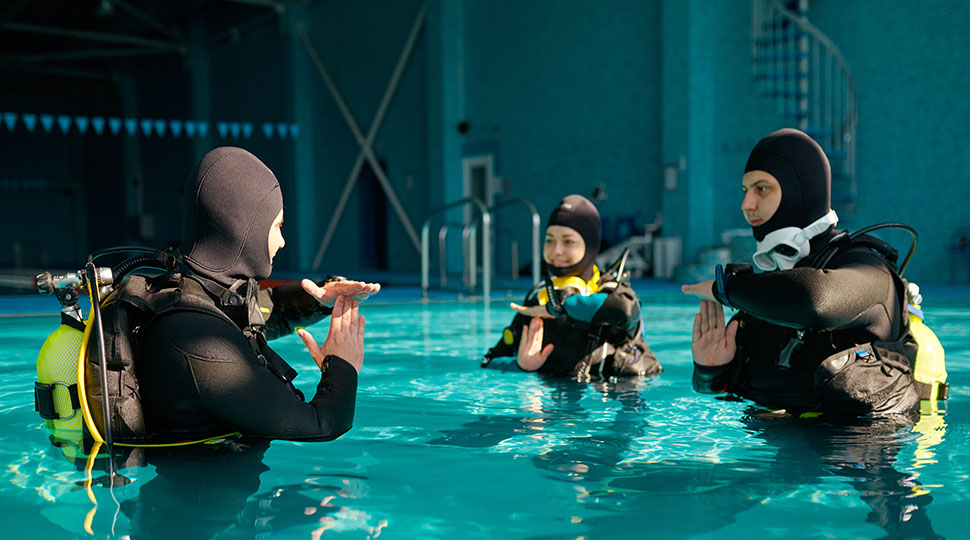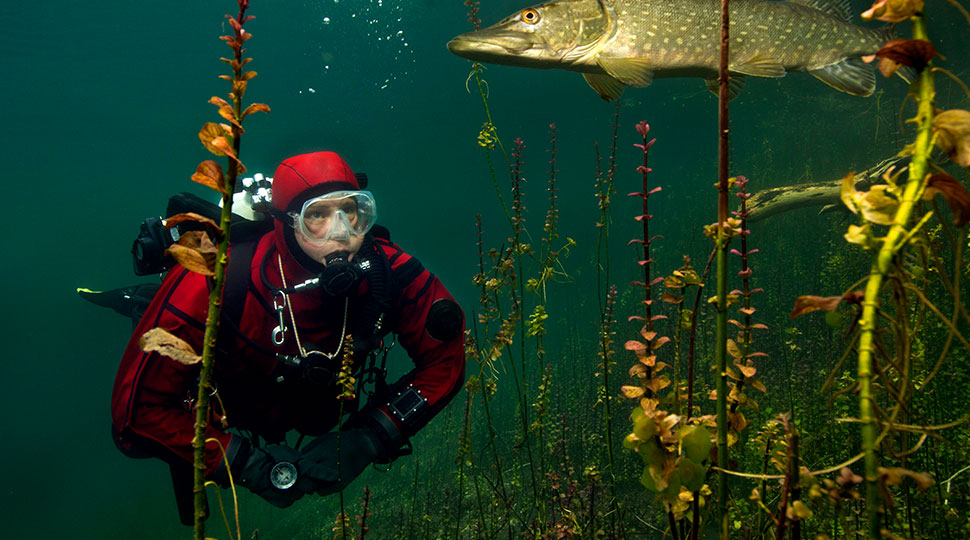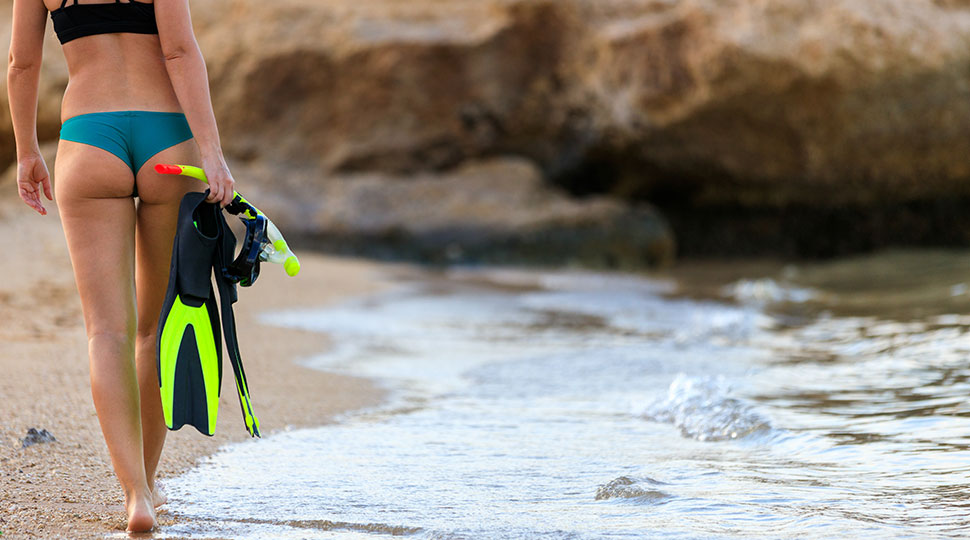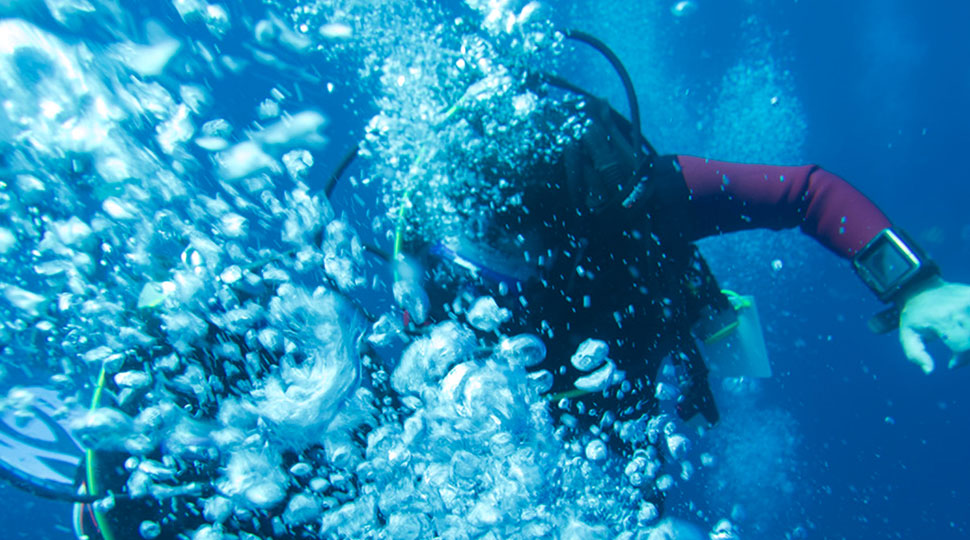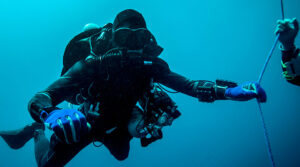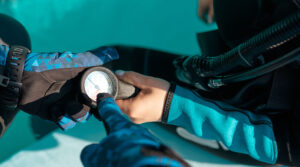Welcome, beginner diver! Have you ever dreamt of exploring the underwater world, discovering the mysteries of the deep, and encountering captivating marine life up close? If yes, then SCUBA diving is the perfect activity for you!
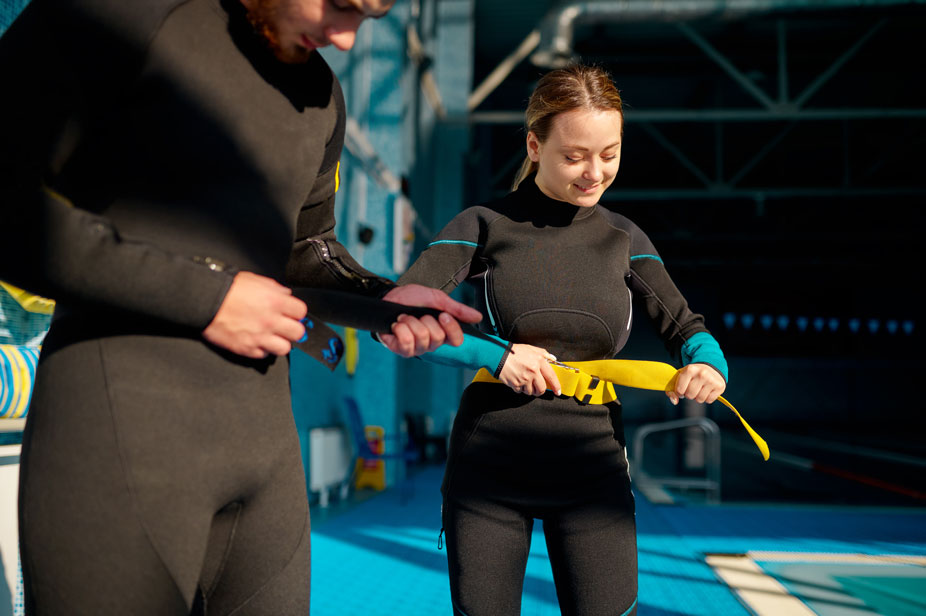
As a beginner SCUBA enthusiast, you might find the idea of venturing into the submerged universe both thrilling and daunting. But don’t worry! Like any other new diver, all you need is the right guidance, training, and equipment to confidently take the plunge.
SCUBA diving is an exhilarating and rewarding sport that allows you to immerse yourself in the wonders of the underwater realm. It stands for Self-Contained Underwater Breathing Apparatus and involves using specialized equipment to safely breathe, navigate, and explore underwater environments.
Some of the countless benefits of SCUBA diving include improving physical fitness, relieving stress, fostering environmental appreciation, and forming social connections with like-minded adventurers.
What You Need to Get Started with SCUBA Diving
To embark on your fascinating aquatic journey as a beginner diver, you need to gather the essential equipment and knowledge required for safe and enjoyable underwater escapades. Let’s dive into the details of these basic requirements below.
Essential Equipment for SCUBA Divers
Before exploring the secrets of the deep, you’ll need to arm yourself with the fundamental gear necessary for a comfortable and secure dive. Here’s a list of the must-have equipment for every new diver:
Mask: A high-quality dive mask ensures clear vision throughout your dive and should fit snugly on your face without causing discomfort.
Snorkel: This handy tool aids in conserving air when you’re on the surface and serves as a backup in case of air supply issues.
Fins: Durable and comfortable fins facilitate efficient movement underwater and help conserve energy.
Buoyancy Control Device (BCD): A crucial piece of equipment, the BCD helps you maintain neutral buoyancy, which is vital for effortless diving.
Regulator: This apparatus delivers air from your tank to your mouth and should be reliable and easy to use.
Dive Computer: An essential safety device that monitors your decompression limits, depth, and dive time to help you plan your dive effectively.
Air tank: A dependable tank filled with either standard air or Nitrox ensures you have sufficient air supply throughout your dive.
Weights and Weight Belt: A weight system is necessary for fine-tuning your buoyancy and ensuring a comfortable dive.
Dive Knife: A compact and functional dive knife can come in handy in unexpected situations, such as entanglements.
Surface marker buoys and whistle: These essential safety items help signal your location to your dive buddy or boat crew.
Where to Obtain the Necessary Gear and Training
As a beginner diver, you might not know where to start when it comes to purchasing or renting equipment and enrolling in a training course. Here’s some guidance to help you take the plunge:
Dive Shops: Local dive shops are treasure troves of equipment, expertise, and camaraderie. You can test, compare and purchase gear from knowledgeable staff who can provide personalized advice based on your needs and budget. Many dive shops also offer rental services if you’re not ready to invest in your own equipment.
Online Retailers: For added convenience and potentially lower prices, you can explore reputable online retailers that specialize in SCUBA gear. Make sure to read reviews and get recommendations from experienced divers before making a purchase.
Dive Schools or Resorts: Seeking professional SCUBA diving instruction is crucial for mastering the techniques and safety procedures required for a fulfilling underwater experience. Look for certified dive schools or resorts that offer beginner courses following internationally recognized standards, such as PADI or SSI.
Safety Tips for Beginners in SCUBA Diving
As a beginner diver, ensuring that you follow safety guidelines and best practices is as crucial as assembling your gear and acquiring skills. Consider these safety tips your underwater exploration – a blend of knowledge and awareness that will make your dives smoother and more enjoyable:
Understanding the Risks Involved with Underwater Exploration
Learning about the potential dangers of SCUBA diving, such as decompression sickness and equipment malfunctions, helps you become more vigilant and proactive in preventing accidents. Make sure to cover the following aspects during your training:
Understanding dive theory: Familiarize yourself with important concepts, such as pressure and buoyancy, that can impact your safety and diving experience.
Knowing your limits: As a beginner, stick to recommended depths, resist pushing yourself too hard, and respect your personal boundaries.
Preventing and treating injuries: Learn about common injuries, such as ear barotraumas or marine stings, and how to avoid and respond to them.
Awareness of environmental hazards: Part of being a responsible and safe diver is understanding how to navigate currents, tides, and other natural conditions that may pose risks.
Learning How to Properly Use Your Equipment and Follow Best Practices
Equally important as acquiring the right gear and knowledge is knowing how to put these tools to good use during your dives:
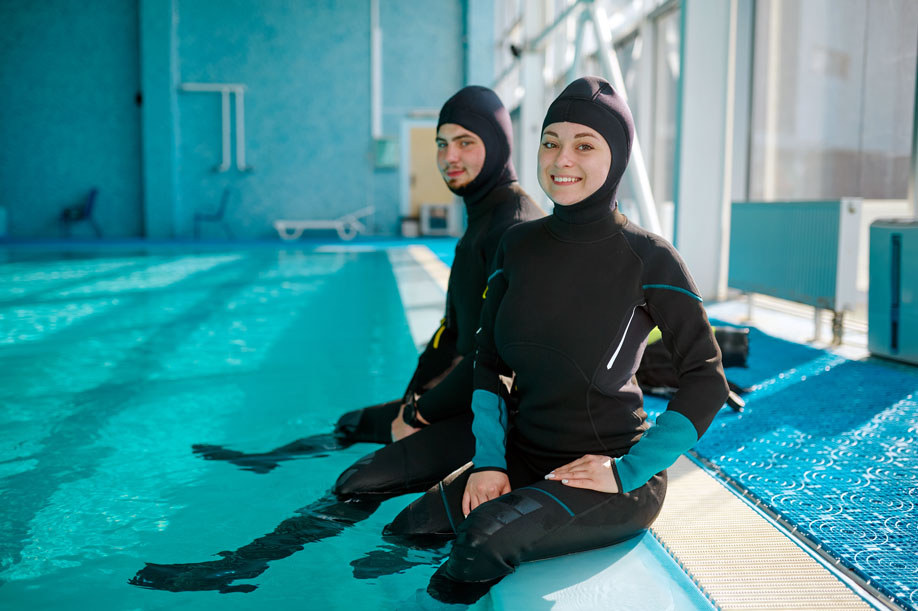
Regular maintenance and checks: Perform thorough pre-dive checks of your gear and get it serviced regularly to ensure it functions optimally.
Practicing skills regularly: Refine your dive skills consistently, even if you’re not planning a dive, to keep them fresh and reliable.
Planning your dives meticulously: Carefully consider factors like air supply, surface intervals, and no-deco limits, and adhere to your dive plan.
Diving with a buddy: Always dive with a trusted companion who can help you during emergencies and enhance your underwater experience.
Dive safety rules: Respect safety guidelines, such as ascending slowly, performing safety stops, and breathing continuously to minimize risks.
The Safety Stop
Becoming a SCUBA diver is a thrilling endeavor that opens up a whole new world of wonder and adventure.
As a beginner diver, investing in the right gear, training, and safety knowledge is crucial for a smooth dive experience.
Remember, the underwater world awaits your curiosity, and with patience, practice, and dedication, you’ll soon be gliding gracefully alongside fish, exploring vibrant coral gardens, and uncovering the hidden treasures of the deep.
Happy diving!

